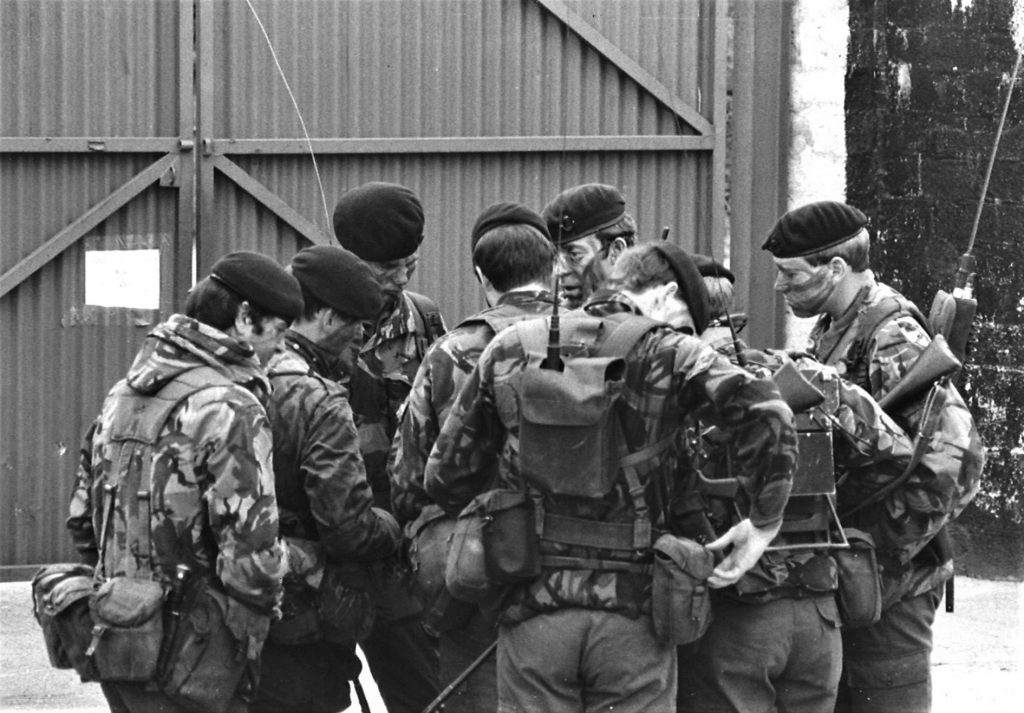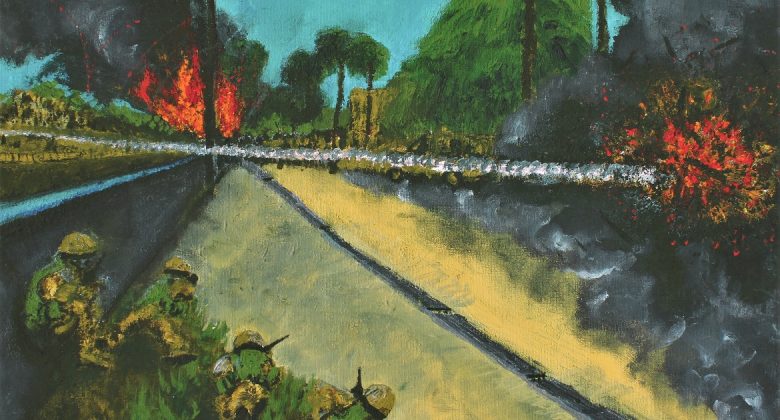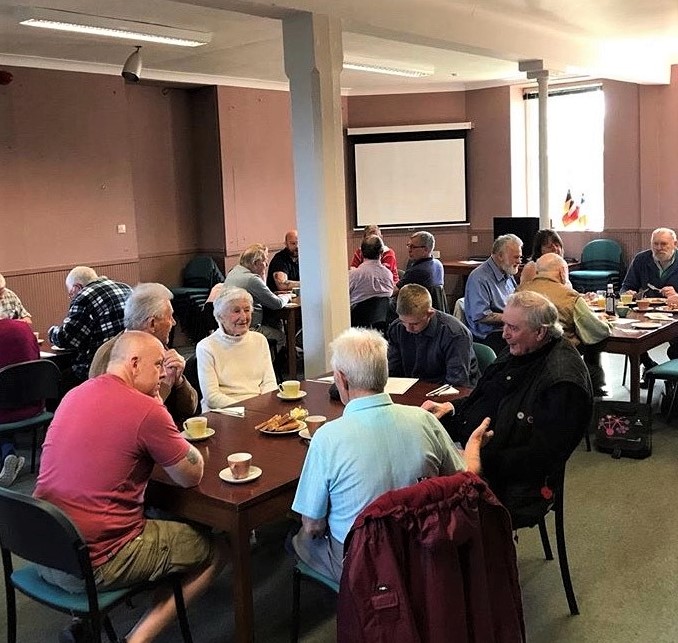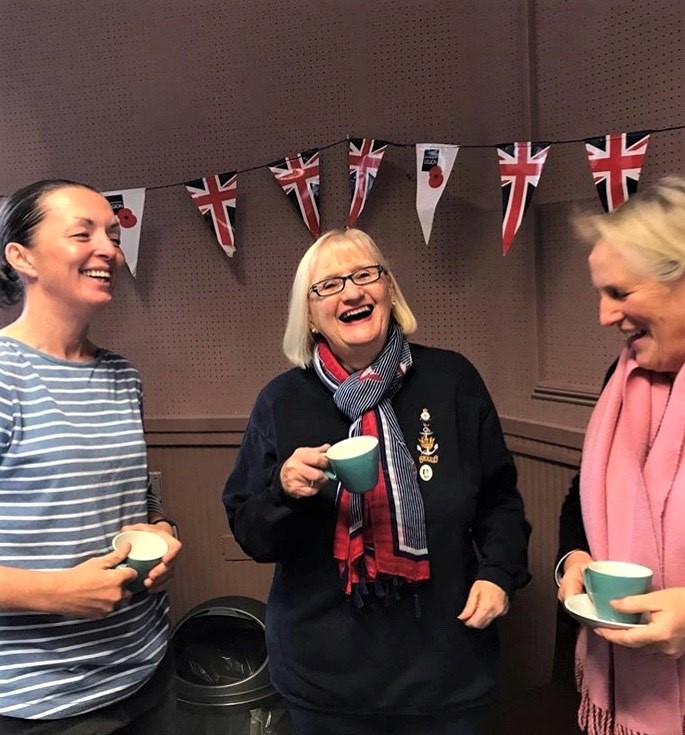Recovery

With the right support, veterans and service personnel struggling with their mental health can improve. Cognitive-Behavioural Therapy has shown greatest success. This is a talking therapy that helps to challenge thought patterns. Some people find medication or hypnotherapy helpful. Art and creative therapies are steadily gaining recognition. But strong community support is essential for any form of recovery.
Martin Webster developed PTSD following his experiences in the army. After returning home, he began painting scenes from his time in Iraq, and held an exhibition called ‘Voices of War’ in 2008 to help civilians understand what the experience of combat is really like. His paintings confront the viewer with a reminder of the brutality and terror of war.

The Armed Forces Veteran’s Breakfast Club was founded by Dereck J. Hardman and veterans of the Royal Electrical and Mechanical Engineers (REME) corps in Kingston-upon-Hull. They started meeting up for ‘banter’, ‘brew’, and a ‘butty’. The get-together quickly expanded to become a network of 400 clubs, even reaching as far as Cyprus. Derek Coad set up the Bodmin Breakfast Club, which now meets monthly at Bodmin Keep.

– Frances Townsend, member

